Stay Out of the Potato Chip Aisle to Avoid These Nerve Damaging Additives
On average, Americans consume 1,300 calories per week in snack foods. These are not healthy anti-inflammatory snacks but processed foods that trigger pain and damage nerves.
If you suffer from neuropathy, what you eat and drink can directly influence the amount of pain you feel, which is why healthy anti-inflammatory snacks are essential.
If you are in pain and simply do not feel like preparing a healthy snack, odds are you are reaching for potato chips at the grocery store. Maybe you imagine relaxing this weekend and binge-watching your favorite program. It only makes sense that indulgent snacks would be on your radar.
On average, Americans ingest approximately 1,300 extra calories per week through snacking—not healthy anti-inflammatory snacks but a cookie here and a soda there. This is 1,300 calories above what is required to maintain a healthy weight. In fact, snack calories are high enough to represent an additional day per week of eating. In other words, this increased caloric intake through snacking would only average out if we enjoyed an 8 day weekly calendar.
These 1,300 additional calories, in most cases, are not healthy anti-inflammatory snacks but represent sugar, processed carbohydrates and sodium, which are some of the worst things you can put into your body if you suffer from neuropathy.
When It Is Not a Healthy Anti-Inflammatory Snack, It Is Likely a Harmful Snack
Most store-bought snacks are loaded with things you would not put into your body if taken alone. For example, when you are eating a processed snack, the odds are good that you are also eating something—probably more than one ingredient—that has been linked to pain and inflammation. Would you take a pill that was linked to inflammation? Probably not.
Three of the most common harmful additives found in American store-bought snacks include:
- Excitotoxins
- Potassium bromate
- Sugar
Where are these additives or ingredients found, and what do they do?
Excitotoxins
Clinicians and scientific researchers are all starting to agree, in ever-growing numbers, that excitotoxins are particularly bad news. They’ve shown themselves to play a critical role in the development of neurological disorders like neuropathy, multiple sclerosis, Alzheimer’s, Parkinson’s, Huntington’s, certain cancers, cardiovascular problems, and respiratory diseases.
You’ve probably heard of how bad aspartame is for you (it’s commonly sold as NutraSweet or Equal), and this is because it tends to cause states of excitotoxicity within the body. It’s present in over 6,000 different products and continues to be responsible for a disproportionate number of health issues. For whatever reason, aspartame is still the go-to ingredient found in most “no calorie” and “sugar-free” options, as food manufacturers are still trying to convince us that it’s a better alternative to regular, old sugar (hint: it’s not).
Another excitotoxin, monosodium glutamate (MSG) is very commonly found in restaurant foods, even if the restaurant itself doesn’t add it. Food suppliers routinely add MSG to their products, and it’s also found in packaged foods like flavored chips, salad dressings, dips, soups, frozen meals, instant noodles, and more. Meat products have it, too, especially those that have been packaged and processed (a decent rule of food thumb: if it’s got a colorful and recognizable label on it, it’s more than likely to be packed with chemicals and additives like MSG).
Potassium Bromate
In the United States, potassium bromate can be found in baked goods, certain vegetable oils, and some potato chip brands. Its purpose is to make dough and food coatings stronger and to help food dyes stick. In breads, it helps the dough rise higher and gives the finished bread an appealing white color. But, there is good reason that it has been banned in these countries:
- European Union
- Argentina
- Brazil
- China
- Canada
- Nigeria
- South Korea
- Sri Lanka
- Peru
In 1982, a study found that potassium bromate causes thyroid and kidney cancer in rats and mice. The results were so unequivocal that a series of studies took place simultaneously, and the results did not vary. These results are more damning than an ingredient being “linked to” a disease or reaction. Potassium bromate is a known cancer-causing ingredient still available in American snacks.
In 2007, when a batch of American potato chips made their way to grocery shelves in China, authorities pulled them immediately because of the potential for potassium bromate being reintroduced into their population.
Meanwhile, research has shown that thyroid and kidney cancers are rising in American children whereas other cancer types and rates have stabilized.
Fructose and Sugar
Always check food labels and avoid this ingredient.
One study found that consuming sugary soda increased LDL cholesterol, impaired glucose, and elevated c-reactive proteins (CRP), especially in young males. CRP is a protein found in the blood used to measure inflammation, which is a precursor to several conditions including diabetes and idiopathic pain. And of course, peripheral neuropathy is strongly linked to diabetes.
Another study found elevated CRP levels in blood within 30 minutes of consuming high fructose. Fructose is a sugar derived from fruit and often added to foods and beverages in the form of high fructose corn syrup. This does not indicate that fruit is bad for you. The amount of fructose found in fruit is not comparable to what is added to processed foods. In other words, the amount of fruit you would have to consume to equal the fructose found in the average processed food additive is not humanly possible.
Yes, fruit is still good for you in moderation, and if you are diabetic moderation is especially important! Fruit should be limited to three servings per day. However, checking your sugar levels before and following fruit consumption is a better indicator than the three-serving rule. Some people with diabetes can tolerate an apple, for example, and some cannot.
Avoiding fruit juice is recommended, and it is important to remember that generally the riper the fruit the higher it is on the glycemic index, which means it increases blood sugar.
Fruits to be wary of include:
- Cherries
- Bananas
- Mangos
- Grapes
- Pineapple
- Dried fruits
Common snacks that contain high fructose corn syrup and sugar include:
- Bread and baked goods
- Candy
- Cereal bars
- Some yogurts
- Frozen snacks or TV dinners
- Fruit juice
- Granola bars
- Ice Cream
- Nutrition bars
- Nutrition drinks
- Soda
- Salad dressing, sauces, and condiments
Choosing Snacks to Replace Inflammatory Potato Chips
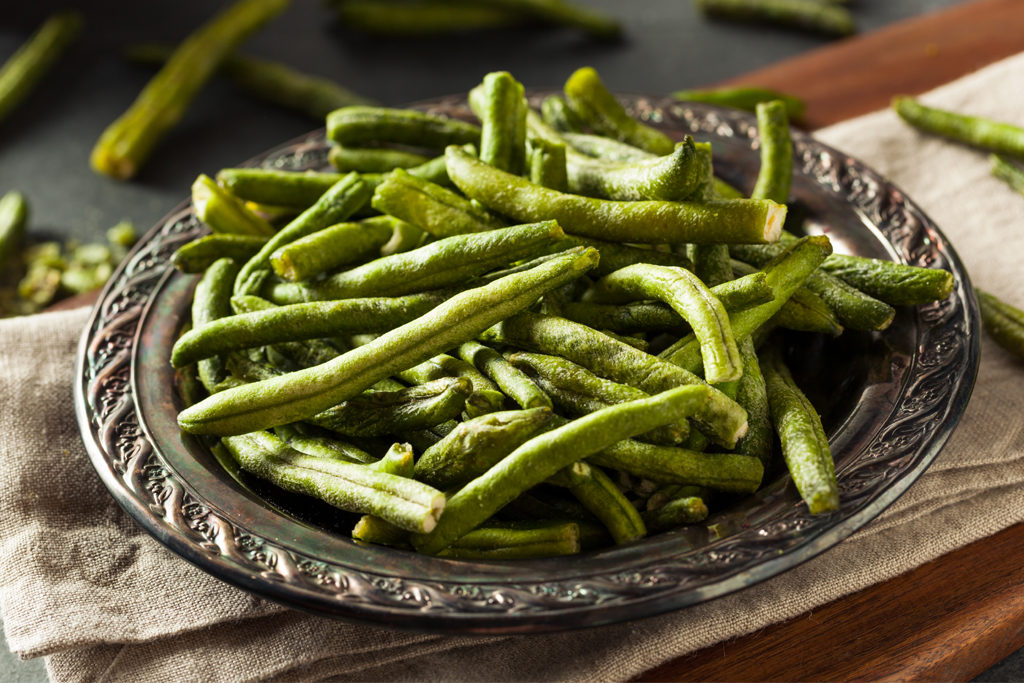
Some people believe that choosing a granola bar over a candy bar is a step in the right direction, or opting for a nutrition drink over a can of sugary soda is the way to go. Not the case when you are dealing with a chronically painful condition.
Labels are often deceptive, and the word “nutritional” should never be taken at face value. Often labels will include high fructose even when the snack is marketed as healthy.
When processed food is labeled as being low in sugar, for example, this can be countered by neurotoxic “fake” sweeteners.
Whenever possible, it is better to stick to natural unprocessed foods when looking for snacks that you won’t regret when your symptoms flare up the next morning.
- Instead of potato chips this weekend, try cucumber chips. Mash an avocado with lemon juice for a delicious veggie dip.
- Instead of processed ranch dressing, mix unsweetened Greek yogurt with your favorite herbs for dipping.
- Instead of sugary sodas or “nutritional drinks,” consider water flavored with a slice of fruit.
- Instead of ice cream, try frozen berries.
- Instead of peanut butter-filled pretzels, cut some celery sticks and generously dip in nut butter.
The idea is to stay out of the proverbial potato chip aisle and seek alternatives in healthy anti-inflammatory snacks, taking a “this is better than that” approach when reaching for inflammatory goodies.
What will you come up with? What will keep you out of the potato chip aisle?
Healthy Snacks That Require Minimal Planning and Prep
Dehydrating vegetables to keep on hand is a good idea. In fact, dehydrating foods is easier than you may think.
For the most part it requires slicing, a touch of olive or coconut oil, a dash of your favorite seasoning and an oven. You’ll want a low temperature and up to 20 hours to leave veggies on the tray in the oven, checking in on them periodically.
When it comes to fruit, dehydrating is just as easy. However, avoid dehydrated fruit if you are diabetic or pre-diabetic due to the concentration of fructose.
Further, there are small food dehydrators on the market, reasonably priced, that allow you to dehydrate multiple fruits, veggies, and even meats without ever turning on your oven.
It is really a matter of preparation. Once you have your supply of dried veggies and fruits, you can store these in your pantry as go-to healthy snacks. Your fruits and veggies should stay fresh if they are kept dry, which means you only have to snack prep once or twice per month.
You’ll feel great grabbing your premade dehydrated foods, knowing that what you are eating is helping to reduce inflammation and give you the nutrition your body needs to heal and stay healthy.
Try Healthy Anti-Inflammatory Snacks to Avoid Pain
When it comes to pain, what we put into our bodies is directly related to the way our bodies feel. Keep in mind that it only takes 30 minutes to raise inflammation levels in your blood following ingestion of high fructose. Then also consider years of that extra day per week (or 1,300 calories) of processed snacks we are not designed to consume each week.
It is time to push reset and make the switch to nutrition-rich anti-inflammatory snacks.
Top 4 Reasons Why Olive Oil May Benefit Nerves
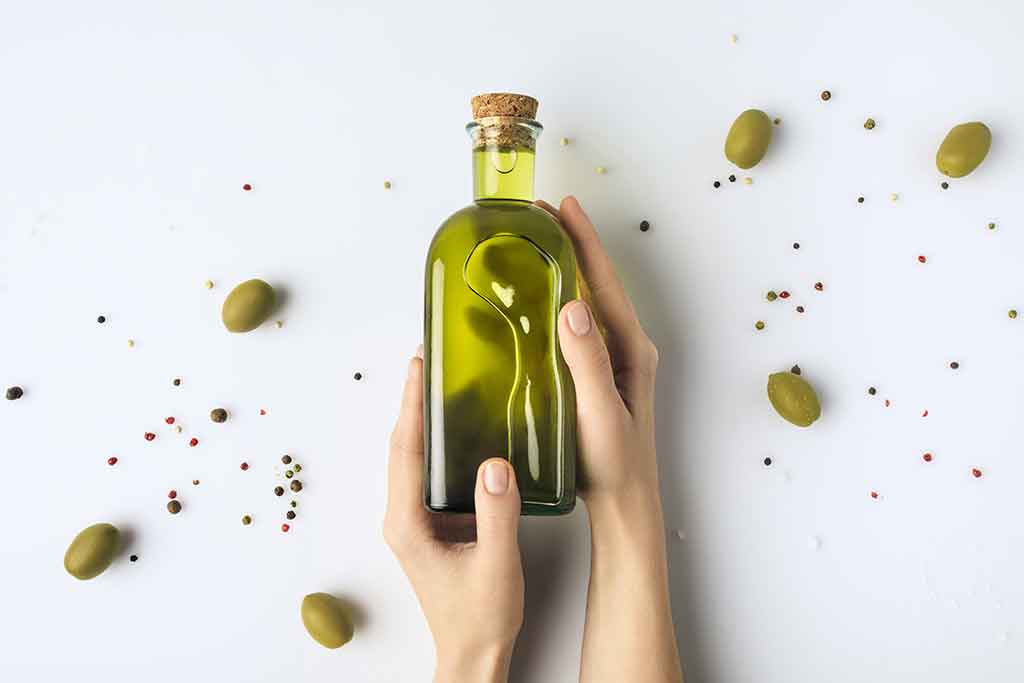
Extra-virgin olive oil may hold secrets to not only peripheral nerve health but central nerve…
6 Powerhouse Herbs for Nerve Damage Regeneration
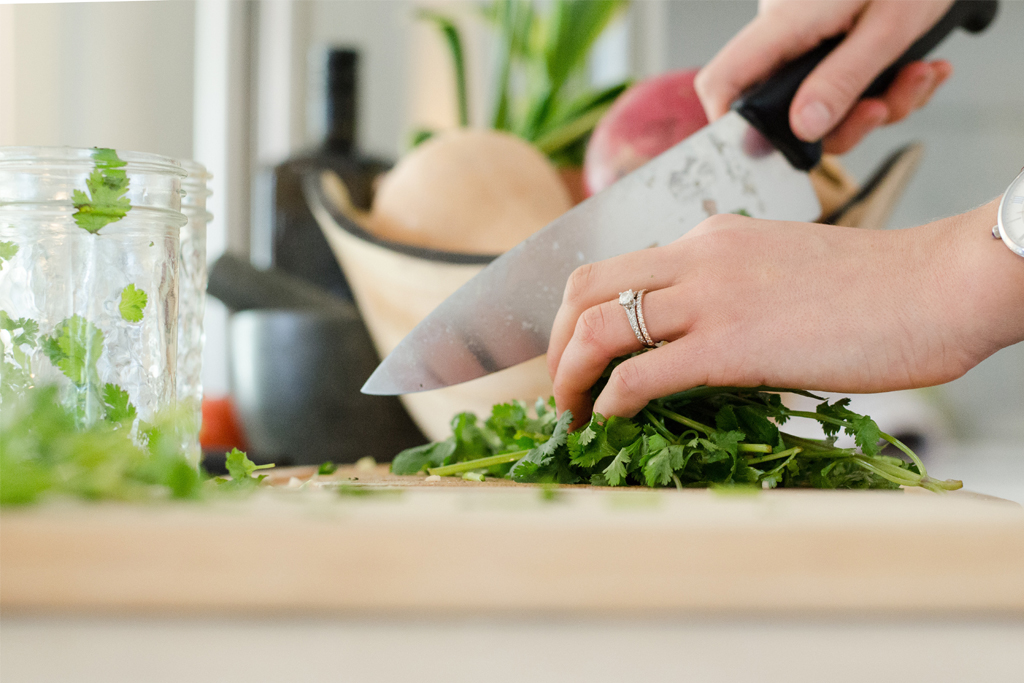
Research supports the use of herbs for nerve damage by combating chronic inflammation and body…
Beware of These Foods That Flare
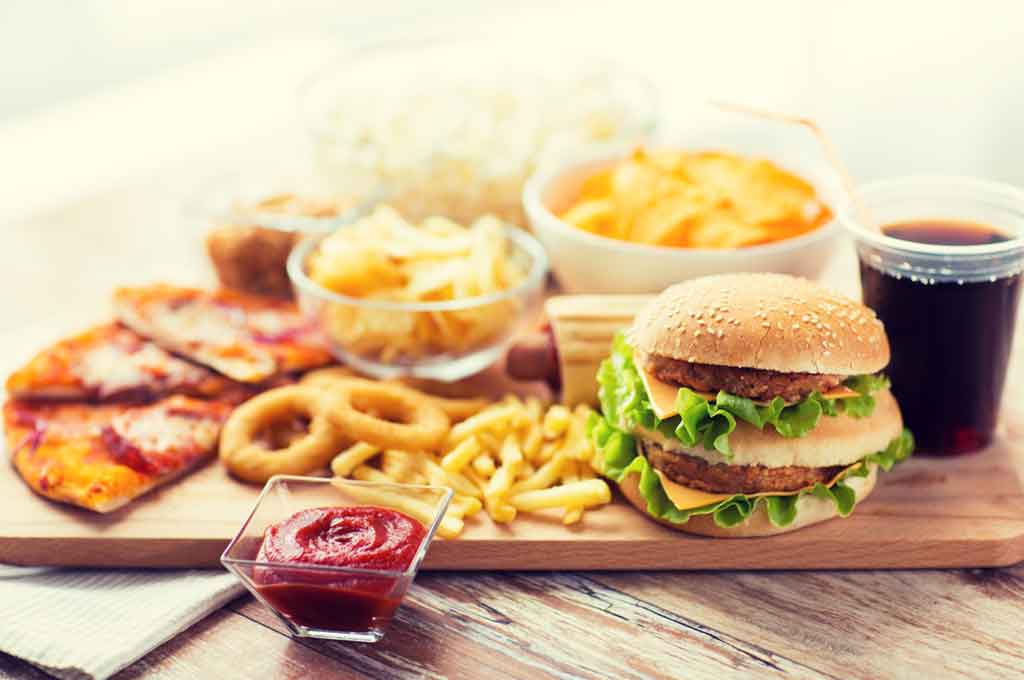
One of the biggest contributors to the onset of peripheral neuropathy is body toxicity. Your…
2 Most Powerful Anti-Inflammatory Antioxidants
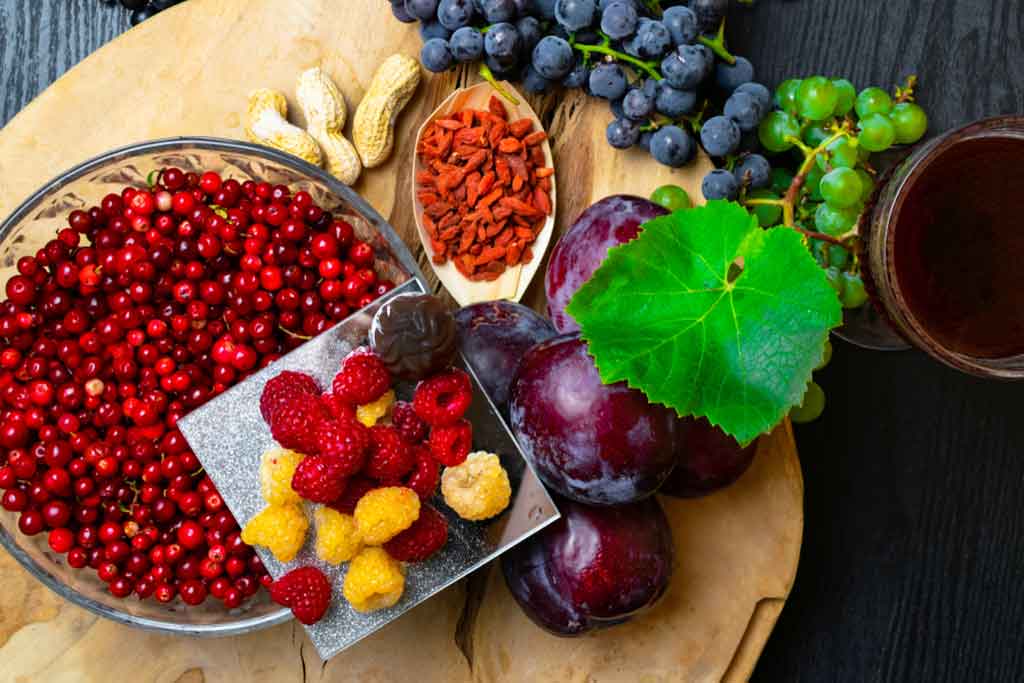
Did you know that your diet goes a long way toward helping you keep your…